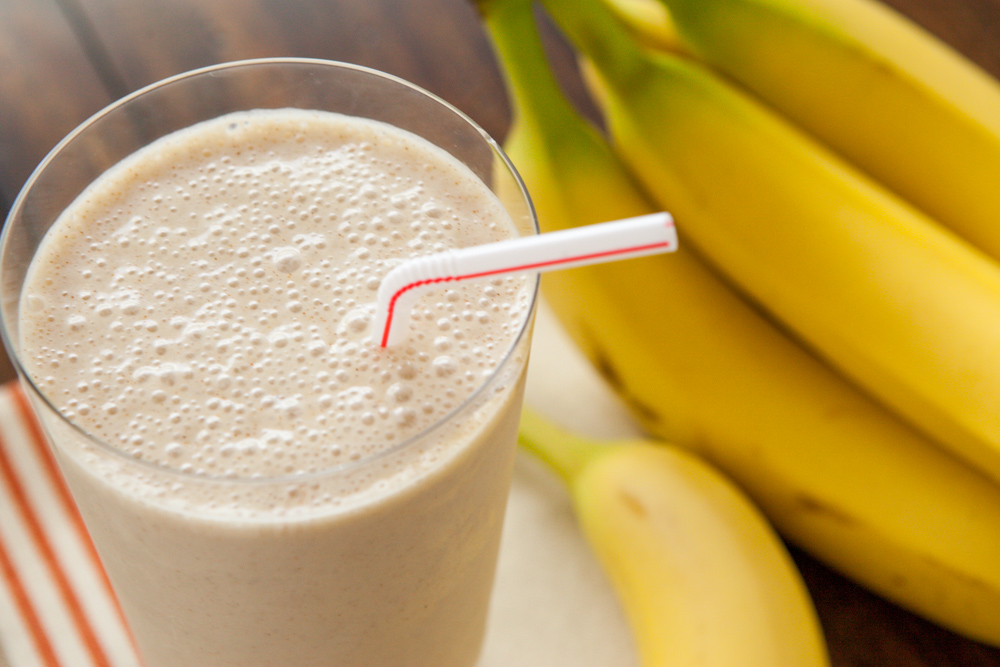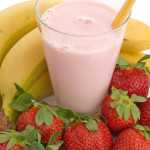Reduce High Blood Pressure with Potassium-Rich Remedy
The smoothie we’re going to present below can be consumed in the mornings, as a delicious breakfast. It’s nutritious, nourishing, healthy and has a very pleasant taste. It’s also of great help for those who suffer from high blood pressure.

Contents
Recipe
This smoothie contains a concentrated dose of potassium – 750 mg of potassium without peanut butter or 900 mg of potassium with the peanut butter included. If you suffer from nut allergy, you can eliminate the peanut butter from the recipe.
Ingredients:
- 1 banana
- 1 cup of soy milk
- 1-2 teaspoons of peanut butter
- 1 tablespoon of cocoa
- 1 teaspoon of honey
Preparation
If you suffer from diabetes, you can use agave syrup or stevia instead of honey. If you are currently on a weight loss diet, you can eliminate honey or other sweeteners completely, as bananas are sweet enough to give this smoothie a great taste.
Cut the banana in small slices and put it in the blender with the soy milk. You can also use other types of vegetal milk, such as coconut milk, oat milk, almond milk or sesame milk. Add the cocoa, the peanut butter and the honey. Mix for a few seconds, until the ingredients turn into a fine and homogenous juice.
In the summer, you can use frozen bananas to prepare this smoothie, because the juice will be creamier and more refreshing, resembling an ice cream.
High blood pressure and potassium
When it comes to reducing high blood pressure, potassium is one of the basic minerals for that. Potassium is able to fight against the sodium effects on the blood pressure and can also prevent stroke.
Unlike the synthetic supplements, natural potassium is much easily absorbed. Some of the foods rich in potassium are: avocado, dried apricots, lentils and beans, figs, carrot juice, spinach, citrus fruits and bananas.
Another health benefit of potassium is that it can reduce the risk of kidney stones development and of losing bone mass caused by aging.
Contraindications
The foods rich in potassium and potassium supplements are not recommended for those who suffer from kidney diseases, severe heart failure, esophageal compression, ulcer caused by stomach acid, paralysis of stomach muscles and stomach and intestinal blockage. They are also forbidden for those experiencing stomach or intestines bleeding, genital or urinary infections, muscle injuries that lead to kidney failure, diabetic ketoacidosis, excessive acid inside the body, Addison disease and large potassium amounts inside the blood stream.



